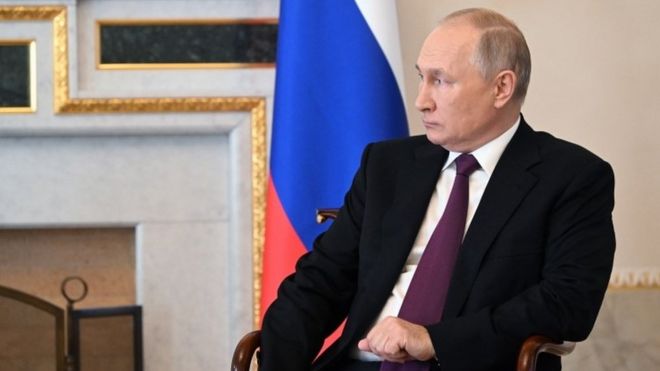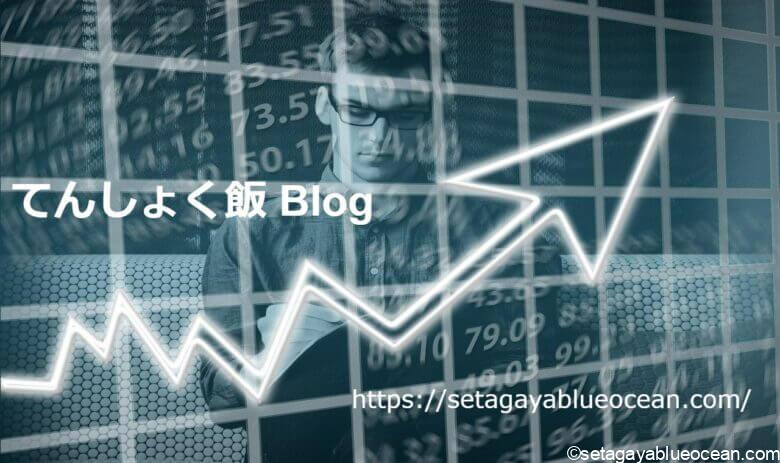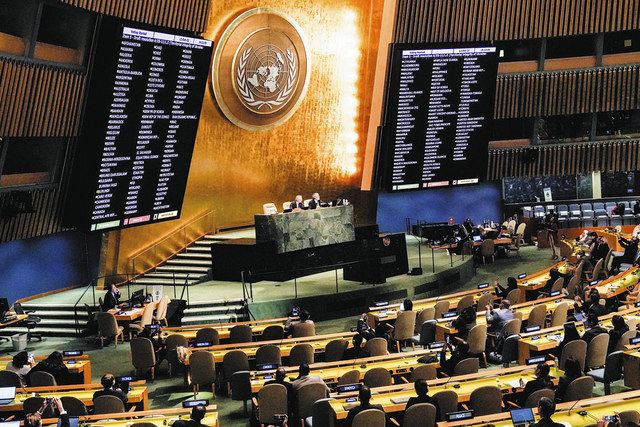Ukraine’s highly mobile rocket artillery systems and Russia’s former Soviet tanks, and the hundreds of thousands of Ukrainian and Russian soldiers who are killing each other in eastern and southern Ukraine, are deciding Ukraine’s fate.
Who will win, Russia or Ukraine? What kind of new international order will emerge when the war is over?

At the moment, Ukraine is taking the initiative and is liberating thousands of square kilometers of territory from Russian aggressors.
Contrary to Russian President Vladimir Putin’s intentions, it seems almost certain that Ukraine will survive as an independent state and be fully integrated into Western economic and political structures.
Regardless of how the war ends, there is no doubt that Russia will continue to be shunned by the world’s economic powers. Ukraine’s devastated territory, a moribund Russian regime, and an atrophied Russian society and economy. These will be the fruits of Russian aggression.
However, when and how Russia returns to the international community, and whether it returns in the first place, will depend on the future of the Russian regime and, moreover, on what kind of peace Ukraine, and primarily the United States, will accept.
Two scenarios are possible after the war ends.
One is that the international order that has been the norm for the past 80 years will be strengthened, and the imperial, intuitive, anti-Western nature of the Russian regime will fundamentally change.
The other is that the world will be divided into two spheres of power based purely on national power and confrontation. In that case, global political integration and economic growth would be severely retarded.
Putin invaded to obliterate Ukraine as an independent country and culture and to prevent it from jumping out of Russian political, economic, and cultural control and approaching the West. But the larger strategic goal is to subvert the normative post-World War II international order.
From Putin’s perspective, that order is the duplicity of the hegemonic empire of the United States, which they are using as a tool to destroy Russian culture, power, and even Putin himself.
This worldview of Putin’s is not unique. Non-Russians from Helsinki in the north to Berlin in the west, Kieu (Kiev) in Central Europe, and Yerevan (capital of Armenia) in the south have a centuries-long history of resenting the decadent West that looks down on them while desperately fending off the great Russian bear that attacks from the east.
The Limits of Russia’s Homegrown Supremacy
As Ukraine has dismissed Russian military attempts to occupy Kiev, U.S. President Joe Biden appears to have made a decision that will open a new era in his long-term policy toward Russia.
Namely, the U.S. will use the war in Ukraine to destroy Russia’s ability to invade other countries and disrupt the normative international order.
U.S. Secretary of Defense Lloyd Austin stated the strategic goal on April 25, saying that the U.S. “wants to weaken Russia to the point where it cannot do what it is doing by invading Ukraine.” The idea is to go beyond the Cold War-era policy of “containment” and change the nature of the Russian regime through sustained military and economic pressure.
If the Ukrainian military defeats the Russian military and the United States succeeds in neutralizing the Russian regime and transforming its political culture, the war in Ukraine in 2022 will be a turning point in world history, comparable to two world wars.
In the first scenario, what happens if the normative international order prevails in this way?
Even if military and economic sanctions succeed and Russia’s power is weakened and it is no longer able to attack other countries, Russia would remain isolated under current U.S. strategic objectives. For the West to accept Russia as a nation again, the Russian leadership and society must reject its own imperial, zero-sum game, sphere-of-power worldview.
In other words, Putin and the homegrown supremacy that pervades Russian society, along with Lenin and Stalin, will be “consigned to the dustbin of history,” as the revolutionary Trotsky put it.
Whatever regime succeeds Putin must protect freedom of speech, establish a fair and transparent legal system, hold free elections on a regular basis, and recognize the inviolability of Russia’s borders and the sovereignty of its neighbors in the long term. This is the position that the U.S. has always advocated and the ideal of the United Nations.
And this is the position that all totalitarians in the world, including Putin, Chinese President Xi Jinping, and Iranian Supreme Leader Ali Khamenei, see as a threat to their own survival, Western cultural imperialism, and “interference in the internal affairs of other nations”.
To the pre-1945 world?
Toppling Putin’s regime and transforming Russia’s political practices and culture is the maximum uncompromising goal, on par with what the U.S. and Britain nearly achieved in World War II.
However, attempting to change a nation’s worldview and political culture is often an act of hubris. Americans should have learned that from their epic failures in Vietnam, Iraq, and Afghanistan.
However, history is not often changed by a single leader. Former President Mikhail Gorbachev revolutionized and liberated the politics and culture of the former Soviet Union, and Putin has undone what Gorbachev accomplished. Russia’s reintegration into the international system will depend on who and how succeeds Putin.
The second scenario is if the new order of power prevails. If Russia succeeds in reempirating part or all of Ukraine and maintaining its hegemony, and if Putin (or his successor) rejects Western norms and continues to view the West (i.e., the United States) as an existential adversary, a new international system of power blocs will be created.
This sphere of influence will be the Russian (and by extension, Chinese and Russian) system against the U.S.-led normative system.
In contrast, the traditional “normative” countries will continue to isolate Russia for the foreseeable future. The international community will then resemble the chaotic and disorderly period before 1945, rather than the more integrated and relatively peaceful world after 1945.
Putin’s invasion of Ukraine and Biden’s decision to change the balance of strategy by destroying Russia’s imperialist power will confront the world’s future with tougher choices than numerous international crises and wars.
It remains to be seen whether the norms of the international community will be strengthened or whether the world will be divided into desolate blocs of power.


コメント